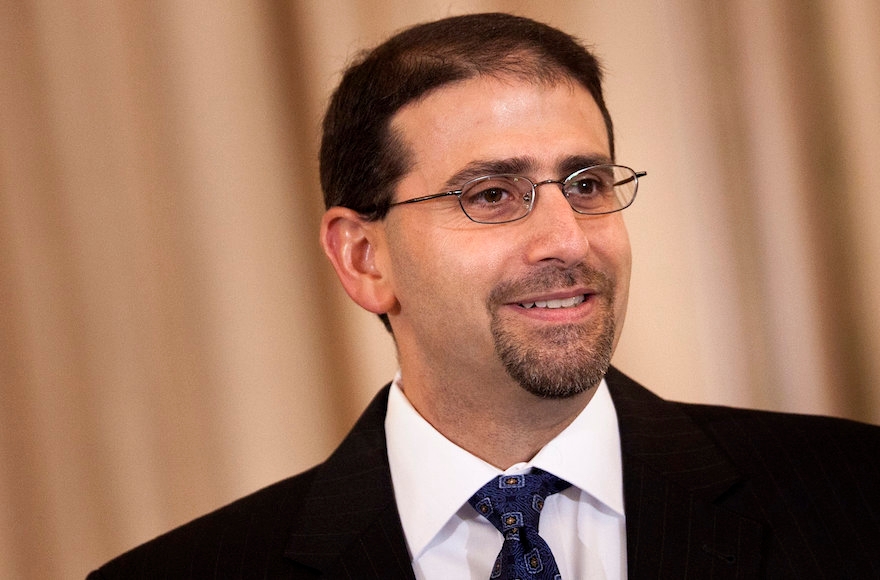WASHINGTON (JTA) — Daniel Shapiro, just retired as the Obama administration’s ambassador to Israel, laid out a path for moving the U.S. Embassy to Jerusalem.
The lengthy article by Shapiro appearing this week in Foreign Policy, coming from an insider with an administration that like its predecessors resisted recognizing Jerusalem as Israel’s capital, suggests that an issue that has dogged U.S.-Israel relations for decades may not be so intractable.
President Donald Trump campaigned on a promise to move the embassy from Tel Aviv, although since his Jan. 20 inauguration he appears to have retreated from the commitment.
Shapiro, who was a Democratic congressional staffer when Congress passed a law in 1995 mandating the move to Jerusalem, noted that all three presidents since then have exercised the law’s national security waiver.
“I supported all three presidents’ use of their national security waiver authority to delay the move in the interest of pursuing Middle East peace,” said Shapiro, who served as ambassador to Israel from 2011 until last month. “But I have never believed that arguments for moving the embassy were groundless, or that it must await a final Israeli-Palestinian peace agreement.”
Shapiro outlined a number of principles guiding any embassy move. One was to make sure it was in western Jerusalem as a means of reassuring the Palestinians that they could still have their capital in eastern Jerusalem as part of a two-state solution.
Another was to consult closely with the Palestinians and other stakeholders, including Jordan, which still controls Muslim holy sites in the city, and Saudi Arabia, which controls major Muslim holy sites on its own territory. He also recommended thorough risk assessments ahead of any move.
Shapiro recommended against moving the embassy before the next waiver expires on June 1, as it would be coincident with the 50th anniversary of Israel’s capture of eastern Jerusalem in the 1967 Six-Day War, and would suggest to Muslims and Arabs that the United States was endorsing Israel’s control over the entire city.
Shapiro’s proposal is not the only one circulating. Robert Satloff, who directs the influential Washington Institute for Near East Policy, has made similar arguments in a policy paper he is circulating.
JTA has documented Jewish history in real-time for over a century. Keep our journalism strong by joining us in supporting independent, award-winning reporting.






